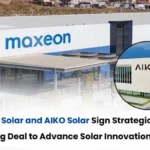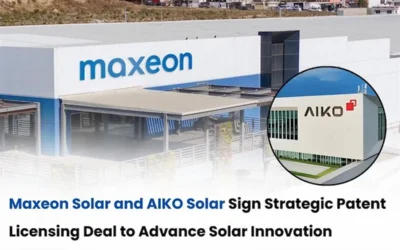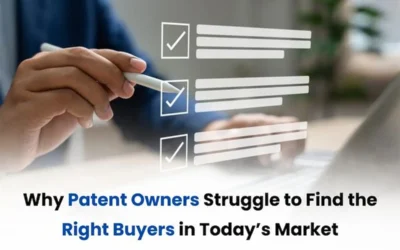
Patents are definitely an asset within the modern intellectual property world, where novel inventions and innovations become protected, as the owners secure the exclusive right to exploit such innovations for direct financial gain. There are ample opportunities available with the patent selling, as most inventors and businesses never even realize about these huge business opportunities. Hence, you first need to get knowledge of those important markets, which are destined to sell the patents. This chapter delves into various markets for selling patents and shows insight into working the markets in your best interests. Whether an inventor with a breakthrough innovation or a company seeking to monetize unused patents, this guide will make the right decision.
Patents and Their Value
Let us understand what patents are and why they have value before making our dive into the key markets for patent sales. A patent is a legally protected paper that gives the inventor the rights to use and sell his or her invention for a specified period of time, usually 20 years. The producer has, in turn, to make the secrets of his invention open for public scrutiny to encourage the potential discovery and adaptation of this idea by other people.
Patents can be very precious for many reasons.
- Exclusivity: A patent right to use, license, or sell the invention stays with the patent owner.
- Grossing Dollars: A patent can be sold or licensed that opens avenues for revenue for the inventors and organizations.
- Market Advantage: Patents give a competitive advantage in the marketplace in that others cannot produce virtually identical products. Now that you know what patents are and why they are valuable, let’s discuss the key markets where you can sell them.
Read Also: Patent Selling Marketplaces: Strategies to List, Pitch, and Close Deals Effectively
Various Types of Markets for selling patent
There are some markets for selling patent:
1. Patent Brokers and Intermediaries
The most uncomplicated form of sale is to be found with a patent broker or intermediary. Patent brokers are experienced professionals specializing in helping owners identify suitable buyers of the intellectual property being sold. They typically carry a list of buyers that they regularly conduct business with, enabling them to accurately estimate a value for the patent.
How Does It Work
- No Patent brokers research your patent and determine its value and market value.
- They usually will seek out, based on their network, the companies, investors, or entities that are interested in acquiring your patent.
- Traditionally, brokers usually take a commission (usually between 10% to 30%) of the money received upon the successful sale of your patent
Benefits
- Extend a gigantic network of potential buyers
- Professional values and marketing services for your patent.
- They take care of the complete sales process, saving you time and effort.
Disadvantages
- Brokers charge a commission, hence reducing your overall earnings.
- Patent value and demand in the market allow for some time before finding the buyer.
2. Technology Transfer Offices
A brilliant option for most academic institutions, research labs, and universities is Technology Transfer Offices. Intellectual property may be commercialized, and patents just happen to be one of these examples, via a platform where such offices function. Such offices facilitate the process of transferring technology from academics to industry through either licensing or an outright sale.
How They Work
- Determines the market viability of the patent created in-house.
- Seek potential organizations or companies that might show interest in the licensing and or acquire the developed technology
- TTO help in negotiation of terms and meeting other legal requirements.
Advantages
- For universities and Research- based products and inventions
- TTO is well connected with various companies that might seek any emerging, latest inventions.
- Assistance during the commercialization process. CONS
- Selling patents will sometimes take so much time from the TTO.
- They can take an enormous share of the money received from the sales.
3. Patent Auction Websites
Patent auction websites are one of the recent hot places for selling patents. Online websites provide a chance to list your patents for sales or license through these patent marketplaces. There is no uncertainty or middlemen, making these places a highly efficient way of reaching the end buyer. This one is the best markets for selling patent
How They Work
- Patent holders put their patents on the online auction sites.
- There is an auction by the interested buyers and the highest buyer takes the patent.
- Some sites allow for licensing agreements, and on those sites, the patent can be used by one particular buyer in exchange for some fee.
Benefits
- It is fast and simple method of selling patents or licensing.
- The transaction is transparent since both the seller and the buyer can communicate.
- Patents are sold to an international market.
Disadvantages
- Not It will charge some listing fees of the auction sites or take commission percent from the sale.
- Not It will not sell even with a patent, depends upon the interest of people buying it.
4. Corporate Partnerships/Joint Ventures
Large corporations always try to get their latest technology for their products and services. In case of any patent that possesses high potential within the industry can be sold with corporate partnership or joint ventures.
How they work
- The patent owners will jointly work with a company that may be able to come up with a design or can market the technology.
- No Companies shall not own patents wholly and exclusively, or companies can license a joint venture.
- No Joint ventures will make the company partner with the patent owner in a business deal. Bringing the said technology to market will be a joint venture for the above.
Benefits
- For some holding a long-term license or partnership, there may be potential extra revenues .
- Access resources, skills, and channels of distribution linked to massive corporations.
- There is potential for future cooperation
- In some cases, it will take quite a long time and even legal consultancy for explaining such intricate trades.
- Even the previously applied comparative analyses methods will require more than that time period.
Read Also: Difference Between Patent Licensing vs Franchising, and Which One Is Right for Your Business?
5. Private Investors and Venture Capitalists
If the technology in your patent is revolutionary in nature, having very enormous market potential, then private investors or venture capitalists may be keen to acquire or invest in your patent. These investors have always been attracted toward high-risk-high-gain ventures and will hence be attracted towards patents that carry considerable growth potentials.
How They Work
- No Investors or VCs value the patent and determine its marketability.
- No They can either buy or license directly if they feel there is an opportunity in the patent.
- No Investors would not invest more on development of the technology either in terms of equity or royalties
Benefits
- No It has possibilities of payback for your patents.
- No Highly probable rounds of financing for additional R&D’s and commercialization attempts
- No Long-term possibilities of joint venture and expansion
- getting an investor is not easy thing and will take much time
- most of the investors always claim a percentage of the total profit. it reduces your total percentage of income .
Conclusion
If a patent owner finds markets for selling patent, then it can sell or license its patents to some of the following marketplaces: Patent brokers, Technology transfer offices, Patent auction sites, Corporate partnerships, and private investors. Of course, every market offers its merits and demerits. Now, once you establish the patent valuation, your viable market, and your long-term goals, you know how to selling patent in the market .The thing is that you can really make a lot in the patent sales if you do it correctly, through the right channels, and also if you get the share of your maximum amount from it. Knowing what you can do and who you can get hold of makes all the difference and makes it a very lucrative way to monetize intellectual property.









